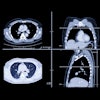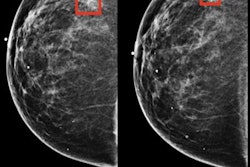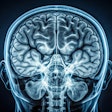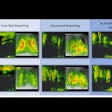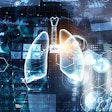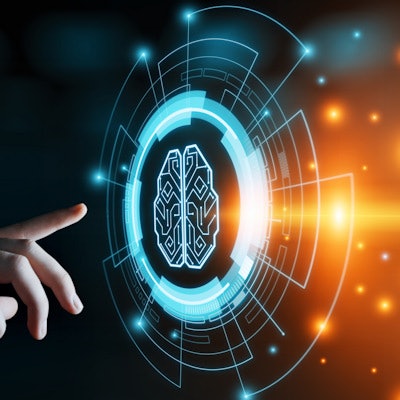
More than half of the several hundred informatics abstracts submitted for RSNA 2020 involved artificial intelligence (AI), and these submissions tended to reflect a growing maturity in the AI space, according to Dr. Nabile Safdar, chairman of the RSNA Scientific Program Committee's radiology informatics subcommittee.
"We're not quite at the AI nirvana yet obviously, but we've also come out of the kind of heavy paranoid earlier years, where there were a lot of claims and a lot of hype and a lot of fear, frankly," said Safdar, who is also vice chair of imaging informatics at Emory University School of Medicine.
Instead, there's a lot more emphasis this year on how AI can be integrated into radiology workflow and less of a focus on the performance of specific models for performing a narrow task, he said.
"There was a lot more consideration for how this will add value to a workflow or to a patient or to a radiologist or some other party," Safdar told AuntMinnie.com.
Non-image-based AI
AI applications that aren't based on image interpretation are also seeing a growing level of activity for tasks such as dealing with workflow and regulatory issues, Safdar said.
 Dr. Nabile Safdar, chair of the RSNA Scientific Program Committee's radiology informatics subcommittee.
Dr. Nabile Safdar, chair of the RSNA Scientific Program Committee's radiology informatics subcommittee."[We've seen a] growing emphasis on AI that's not focused on interpreting pixel data, [such as] dealing with the whole value cycle -- the scheduling, the protocoling, the communication of incidental findings [etc.]," he said.
Safdar also noted some interesting submissions on collaborative, or federated, learning approaches to AI, in which multiple sites contribute information without actually sharing site data. This area is going to become increasingly important, he said.
"Very few practices, departments, or systems want to have to feel like they constantly have to second-guess or double-check whether the model they're using is generalizable to their population," he said. "So the ability to develop those models using data from different sources was discussed more."
The capability to orchestrate multiple AI models in a practice will be an important issue; having to open up multiple applications can be very disruptive to radiologists, he said.
Relationships with referring clinicians
 An issue drawing attention is the effect of imaging-related AI on the relationship between radiologists and referring physicians.
An issue drawing attention is the effect of imaging-related AI on the relationship between radiologists and referring physicians.Another issue generating attention is the question of how imaging-related AI will affect the relationship between radiologists and the referring clinicians whom they provide service to, according to Safdar. For example, there's a lot of interest from neurosurgeons, neurologists, and stroke teams in some of the AI products that are on the market to help them identify stroke, hemorrhage, or other critical neuropathology, he said.
The ability of AI to alleviate certain bottlenecks in the image interpretation process will be helpful to radiologists, who are increasingly facing higher imaging volume and more demand for 24-hour interpretations, Safdar said.
"When there's a stack of 20 cases, it's impossible for the radiologist to know that case No. 19 is the one with the stroke or the hemorrhage or whatever it may be," he said. "So I think AI is going to continue to help us with workflows to reduce those turnaround times, especially when there's a critical [key performance indicator], you know, such as door-to-needle time for something like getting anticoagulation or dealing with a hemorrhage."
Image reconstruction/processing
A handful of papers -- perhaps not as many as anticipated -- were submitted to RSNA that explored the utility of AI in image reconstruction and processing applications, according to Safdar. That includes generating high-quality CT images at lower radiation dose, and also producing visually diagnostic MR images from an exam that was suboptimal due to patient motion or a reduced contrast dose, he said.
Another theme was the use of AI to reduce the amount of time needed for imaging, particularly for MRI, he said.
 Several papers were also submitted on the use of AI for COVID-19.
Several papers were also submitted on the use of AI for COVID-19."The ability for AI to kind of create the optimal image at the modality -- [reducing] time, [reducing] dose -- that's the opportunity, I think, for the modality vendors at this time," he said. "Our exams are still long and uncomfortable, and still have more dose -- whether it's contrast or radiation -- than we would like."
In additional AI developments at RSNA 2020, work continues in cancer detection, including automatic detection and measurement of tumor burden, Safdar said. Even though the abstract submission deadline was in the early days of the pandemic, a number of abstracts were also submitted on the use of AI for COVID-19, particularly on chest x-rays or chest CT exams, he noted.
Other AI opportunities
Other opportunities for AI in the future include automated protocoling, scheduling, reminders, and perhaps helping to generate more patient-friendly reports, Safdar said.
"With the government mandating that patients have access to their records via portals or apps, it's going to be an issue when we get really technical documents with a lot of jargon that are not meant for a lay audience," he said. "[The patients] are going to want explanations and I think we're going to see demand for that. And there's a lot of opportunity for AI/[natural language processing] methodologies to create those."
Women's imaging applications
In breast imaging, there are a lot of opportunities for AI in checking image quality, analyzing breast density, and creating 2D mammography images from 3D digital breast tomosynthesis exams to avoid having to acquire both exams separately, according to Safdar.
"We can expect to see some products and some abstracts at [RSNA 2020 on these topics], but I think it's still relatively early and some of those products and ideas are going to mature over time," he said.
There's also ongoing work with applying AI to diagnostic mammography, ultrasound, or other modalities in women's imaging, including AI-based computer-aided detection (CAD). Comparisons between AI and radiologist performance are a little spurious at this time, however, Safdar said.
"For women undergoing women's imaging and breast imaging, it's not just about the answer," he said. "It's about getting the answer, navigating a complex system of specialists that includes surgeons, oncologists, and their primary care physicians, and being able to talk to someone to help them make sense of it all. At the moment, there's no product that can provide that for them."
As has often been stated, the real comparison for AI will be between breast imagers alone and breast imagers who use AI tools, Safdar said.
"Nobody I know is seriously considering putting AI in alone without human supervision for human diagnosis," he said.
Programming schedule
AI-specific sessions are prevalent on the virtual RSNA 2020 program.
Sunday, November 29
- 10:00 a.m.-11:00 a.m. -- Education Session: Artificial Intelligence: Beyond Interpretive Considerations
- 2:00 p.m.-3:00 p.m. -- Education Session: Creating Publicly Accessible Radiology Imaging Resources for Machine Learning and AI
- 3:30 p.m.-4:30 p.m. -- Education Session: Vascular Applications for Machine Learning
- 5:00 p.m.- 6:00 p.m. -- Hot Topic Session: Artificial Intelligence -- Decision Support: The Coronavirus Experience in USA and China
Monday, November 30
- 8:30 a.m.-9:30 a.m. -- Education Session: Essentials of Machine Learning Study Design and Algorithm Validation: What Doctors Need to Know
- 8:30 a.m.-9:30 a.m. -- Science Session: Breast Imaging (Artificial Intelligence)
- 3:30 p.m.-4:30 p.m. -- Science Session: Gastrointestinal (Artificial Intelligence Liver)
- 5:00 p.m.-6:00 p.m. -- Education Session: Ethical Issues in Medical Imaging AI for Radiologists and Industry
Tuesday, December 1
- 8:30 a.m.-9:30 a.m. -- Science Session: Cardiac (Artificial Intelligence in Cardiac Imaging)
- 10:00 a.m.-11:00 a.m. -- Science Session with Keynote: Chest (Applications of AI and Radiomics in Lung Imaging)
- 2:00 p.m.-3:00 p.m. -- Education Session: Artificial Intelligence for Abdominal Imagers
- 2:00 p.m.-3:00 p.m. -- Science Session: Informatics (Artificial Intelligence: The Cutting Edge)
- 3:30 p.m.-4:30 p.m. -- Hot Topic Session: Artificial Intelligence and Implications for Health Equity: Will AI Improve Equity or Increase Disparities?
Wednesday, December 2
- 8:30 a.m.-9:30 a.m. -- Science Session with Keynote: Gastrointestinal (Artificial Intelligence General Applications)
- 3:30 p.m.-4:30 p.m. -- Education Session: Artificial Intelligence in Radiology: The Hype is Over -- What is Next?
- 5:00 p.m.-6:00 p.m. -- Education Session: Artificial Intelligence (AI) in Oncology
Thursday, December 3
- 2:00 p.m.-3:00 p.m. -- Education Session: AI in Breast Imaging
Friday, December 4
- 2:00 p.m.-3:00 p.m. -- Science Session with Keynote: Breast Imaging (Artificial Intelligence)
Saturday, December 5
- 8:30 a.m.-9:30 a.m. -- Education Session: Innovations in Medical Imaging Physics with Deep learning
- 8:30 a.m.-9:30 a.m. -- Ethics of AI in Radiology: Summary of the European and North American Multisociety Statement
- 10:00 a.m.-11:00 a.m. -- Science Session: Informatics (Artificial Intelligence: Novel Approaches Beyond Images)
- 2:00 p.m.-3:00 p.m. -- Science Session with Keynote: Neuroradiology/Head and Neck (Neuro AI: Image Interpretation)
All events are listed in Central time.
Of course, AI topics will also be presented across a wide variety of subspecialty areas at RSNA 2020. Our second article will provide previews of AI in neuroradiology, pediatric radiology, and physics, among other areas.




